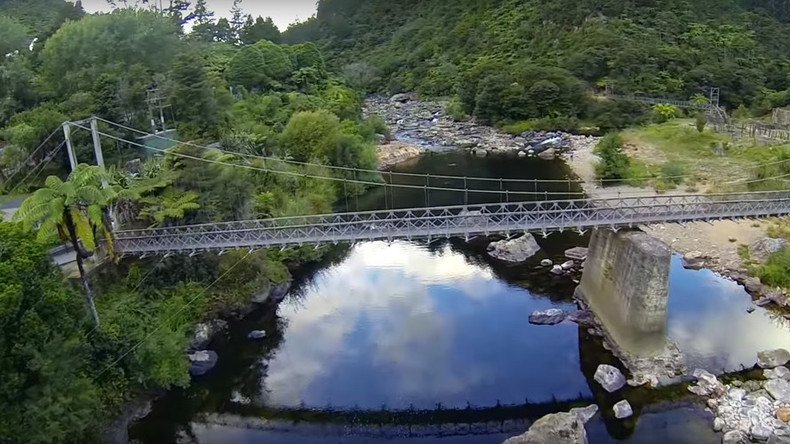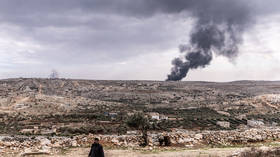Activists form human chain to stop mining of $340mn gold seam on ‘sacred’ NZ mountain

Mining at a massive seam of gold on New Zealand’s North Island has sparked a stand-off between a mining company and environmental activists who are concerned about the impact the mining will have on their “sacred” mountain.
New Talisman Gold Mines announced that it had upgraded the previously discovered seam at its Dubbo site, in the Karangahake Gorge between the Coromandel and Kaimai mountain ranges, earlier this month to 8,500kg (18,739 lbs) after examining samples from the site. Chief executive Matthew Hill is expecting a major windfall.
"The grades that have come out show 21 grams a tonne which is in today's terms one of the top five or certainly one of the top ten in the world," he said, according to Radio NZ. The seam is roughly valued at $340mn at time of writing.
Too big to sell: Mining firm may cut tennis ball-sized diamond to attract buyer (PHOTOS) https://t.co/m2BX0FqC5rpic.twitter.com/wI0BxZCVOM
— RT (@RT_com) July 17, 2017
However, fearing the scenic gorge will be ruined by the firm’s activities, the conservation group Protect Karangahake is now taking steps to fight back against New Talisman’s bid to mine to the area.
Miners, walkers and locals are forced to share one narrow access road to the popular tourist spot, a fact that has angered the activists.
Ruby Jane Powell, a member of Protect Karangahake told the Guardian: “It is a really popular recreation area. In general, our culture and economy is interlinked with the eco-tourism and outdoor aspect of life in the Coromandel, and mining threatens that.”
Protect Karangahake shut down operations for an hour and a half by forming a human chain on the road to the mine Monday, though Talisman mines claims police had cleared the group before any workers arrived on site. The protesters are now preparing a further series of measures to disrupt the mining operation going forward.
What a hike! Lucky our community is committed and the operation has been stopped @lulasticblog#protectkarangahakepic.twitter.com/jgoyJSVH4a
— Protect Karangahake (@SaveKarangahake) May 9, 2016
“It was a very peaceful process, we watched dawn on the mountain, we sang songs," Duncan Shearer, chairman of Protect Karangahake, told Stuff.
"We are there as witnesses to what is going on,” Shearer added. “We're not some sort of silent presence, we're in their faces as much as possible."
The operation has been stopped in it's tracks! #protectkarangahakepic.twitter.com/4ZpZVKmeXY
— Protect Karangahake (@SaveKarangahake) May 9, 2016
Green Party MP Catherine Delahunty told The Guardian that the New Zealand government was “hell bent” on allowing mining companies access to such areas, regardless of how locals feel.
“This is public land which has been set aside to protect its ecological values and for recreation. It is a sacred mountain to the indigenous people of the area and local residents are actively and peacefully opposing the initial development of the mining activity on the mountain,” she said.
Hill, however, believes the environmental impacts of the mining will be small.
"The footprint above surface where disturbances occur is very small – less than 0.4 hectares [2.5 acres]. It's been closed off since 1995 and was only opened for 12 months,” Hill said, as cited by Radio NZ.
"Most, if not 95 percent of our disturbances occur deep underground and will not be noticed at the surface level.”












